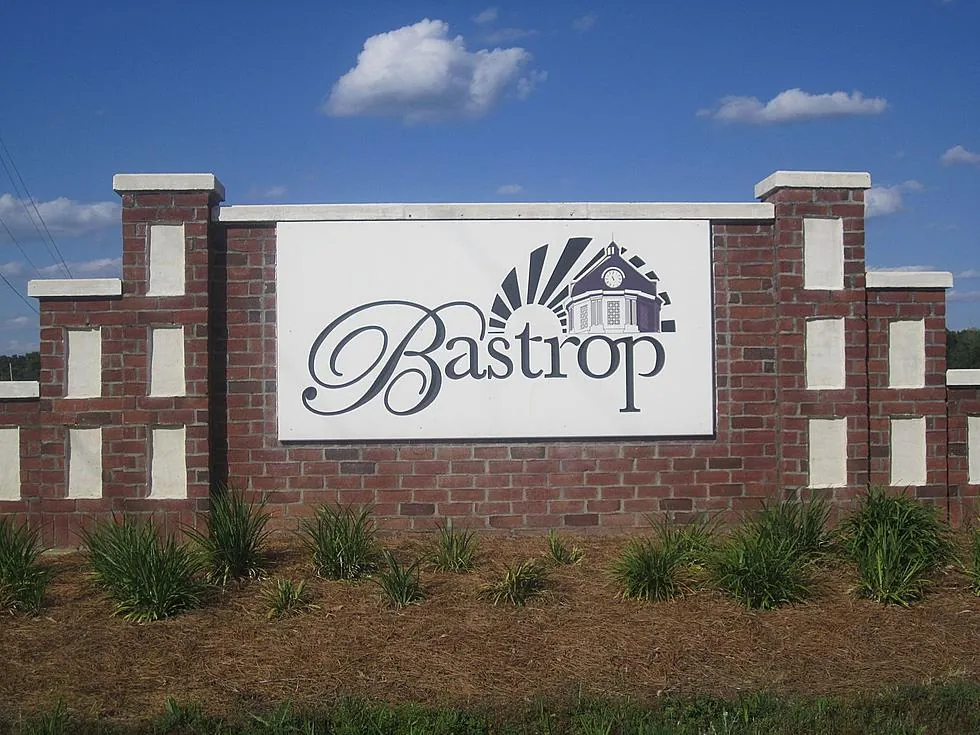In the heart of Louisiana, where bayou breezes whisper through moss-draped trees and gumbo simmers in steamy kitchens, lies a city grappling with a harsh reality. Bastrop, the parish seat of Morehouse Parish, has been labeled the “Worst City to Live in Louisiana” by 24/7 Wall Street, a title that casts a heavy shadow over its 9,879 residents (or perhaps as many as 13,000, depending on the source). This article delves into the factors that contribute to this designation, the challenges faced by Bastropians, and the glimmers of hope that still flicker in the face of adversity.
Source – kpel965.com
The Weight of Poverty:
The first and most glaring factor is the crippling grip of poverty. With a staggering 44% poverty rate, nearly half of Bastrop’s residents live below the state average of 18.8%. This translates to households struggling to afford basic necessities, limited access to education and healthcare, and a cycle of economic hardship that seems difficult to escape. The median household income of $23,955 pales in comparison to the state’s $53,571, further highlighting the economic disparity.
Homes and Hearts: Fragile Foundations:
This economic struggle manifests in tangible ways. The median home value in Bastrop stands at $82,000, barely half the state average of $174,000. This reflects a housing market grappling with blight and disrepair, offering limited prospects for stability and wealth creation. The shrinking population, with estimates ranging from 9,691 to 13,000, paints a picture of residents seeking greener pastures elsewhere, contributing to a sense of community erosion.
A Shadow Over Health:
The harsh realities of poverty and limited opportunities cast a long shadow on the health of Bastrop residents. The city sadly suffers from a drug-induced mortality rate of 43.2 deaths per 100,000 people, exceeding the state average of 41.7. This statistic points to a struggle with addiction, fueled by despair and lack of alternative pathways, further compounding the hardships faced by the community.
Glimmers of Hope in the Bayou:
Despite the formidable challenges, Bastrop is not defined solely by its struggles. There are flickers of resilience and resourcefulness within the community. Local organizations such as the Morehouse Parish Council on Aging and the Family Resource Center of Northeast Louisiana work tirelessly to provide support and services to vulnerable populations. Educational initiatives like the Morehouse Parish Library System strive to nurture literacy and access to knowledge. Entrepreneurs and artists keep the spirit of community alive, showcasing Bastrop’s unique cultural heritage and fostering a sense of shared identity.
Looking Ahead: Beyond the “Worst City” Label:
The label of “Worst City” is undoubtedly harsh and carries the weight of negative stereotypes. However, it should not overshadow the human stories behind the statistics. Bastrop is a community grappling with complex issues, yet within its heart reside individuals striving for a better tomorrow. Recognizing the factors contributing to its struggles is crucial, but equally important is highlighting the resilience and potential that lie within. Investing in education, healthcare, and economic development opportunities can empower Bastropians to chart their own course and rewrite the narrative.
FAQ’s:
1. Is Bastrop really the worst city in Louisiana?
While 24/7 Wall Street ranked Bastrop as the “Worst City to Live In” based on economic and health data, the label is subjective and paints a limited picture. It’s important to consider the city’s unique challenges and the resilience of its community.
2. Why is poverty so high in Bastrop?
The reasons are complex and interconnected. Historical factors like systemic racism and disinvestment played a role, and the decline of the timber industry, once a major employer, further impacted the local economy. Limited access to education and training hinders residents’ upward mobility.
3. What’s being done to address poverty in Bastrop?
Several local organizations, including the Morehouse Parish Council on Aging and the Family Resource Center, offer support services for low-income residents. Additionally, economic development initiatives aim to attract new businesses and create jobs.
4. Is drug addiction a major problem in Bastrop?
Drug-induced mortality rates are unfortunately higher than the state average. Access to addiction treatment and mental health services are limited, highlighting the need for increased resources in this area.
5. Is there any hope for Bastrop’s future?
Absolutely! Despite the challenges, the community boasts a strong sense of resilience and resourcefulness. Local initiatives, educational programs, and cultural activities offer glimpses of hope. Investing in Bastrop’s potential through infrastructure development, education, and healthcare can help rewrite the narrative.
Conclusion:
Bastrop may carry the burden of being labeled the “Worst City to Live in Louisiana,” but this label does not define its entirety. Within its streets reside stories of struggle and resilience, hope and determination. By acknowledging the challenges and supporting local initiatives, we can help rewrite the narrative, fostering a future where Bastrop thrives not just in spite of its difficulties, but because of the strength and spirit of its community.
Disclaimer:
The information presented in this article and the accompanying FAQs reflects data and statistics available at the time of writing (January 12, 2024). Economic and social conditions in Bastrop, Louisiana, are subject to change over time.
While the article endeavors to present a comprehensive and nuanced picture of the city, it should not be considered exhaustive or definitive. The “Worst City” label attributed to Bastrop by 24/7 Wall Street is based on specific criteria and does not encompass the full depth and complexity of life in the community.
This article aims to inform and stimulate conversation about Bastrop’s challenges and potential. It is not intended to endorse or disparage any individual, organization, or viewpoint. We encourage readers to conduct their own research and critically evaluate the information presented.
Ultimately, the decision of whether or not Bastrop is a good place to live depends on individual needs and priorities. We recommend visiting the city or engaging with residents directly to gain a firsthand understanding of its unique character and atmosphere.
Thank you for your interest in Bastrop, Louisiana. We hope this disclaimer provides additional context for the information presented.

